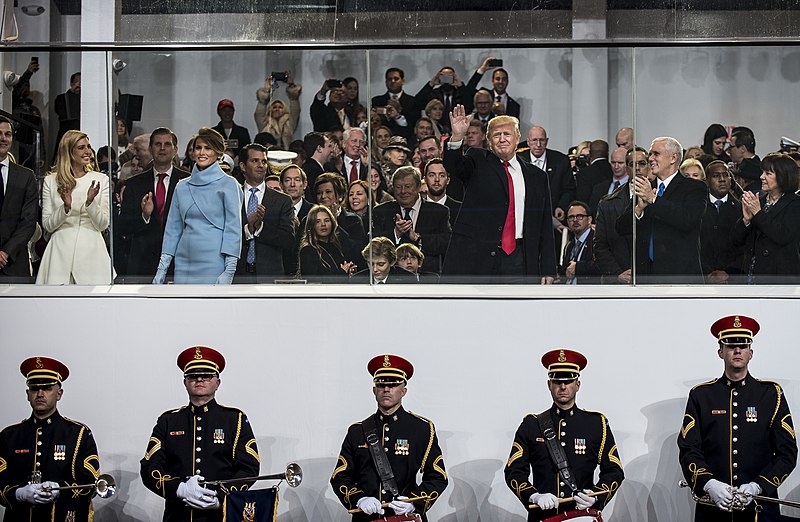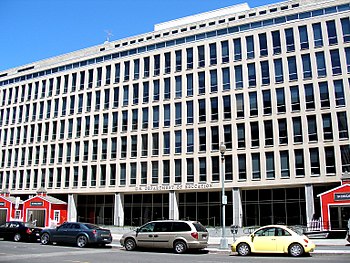
In his first week as president of the United States, Donald Trump issued a flurry of executive orders on a number of subjects.
Some of those orders, such as his withdrawal of presidential recommendation of the Trans-Pacific Partnership treaty (presidents propose treaties, the Senate ratifies them) and a hiring freeze in the executive branch, seem to fall squarely within his powers as laid out by Article II of the US Constitution.
Others, such as his conditioning of federal funding for “sanctuary cities” on their willingness to start doing the federal government’s work for it, his order to begin building a wall along the US border with Mexico, and his ban on entrance into the United States by nationals of seven predominantly Muslim countries, not so much.
Trump’s early actions as president have given rise to substantial protest, not to mention litigation. Will he get away with ruling by decree? The Constitution says no. History says yes. The Trump presidency is far from sui generis . Rather it is the inevitable culmination of America’s long slide into a nearly worshipful attitude toward executive power — what Cato Institute vice-president Gene Healy dubbed, in his 2008 book of that name, The Cult of the Presidency.
The theory of American government is that the president is the chief executive. Words mean things. The president’s job is to implement — to execute — the will of Congress as expressed in legislation. He’s not the homeowner. He’s the housekeeper.
That’s the theory. In practice, presidents have, over time, carved out considerable personal power for themselves. Especially since World War Two and especially in the area of foreign policy (for example, Truman’s decision to go to war in Korea first and ask Congress for approval second), they’ve tended to treat Congress as a rubber stamp. Instead of following Congress’s lead, they expect Congress to follow theirs.
And it’s worked. Americans have become accustomed to regard the president as what George W. Bush called himself: “The Decider.” Or, as Barack Obama put it, “[w]e’re not just going to be waiting for legislation …. I’ve got a pen and I’ve got a phone.”
The “strong executive/weak executive” debate goes back to the founding of the United States. For the last half century and more, the “strong executive” side has been winning out. The result: President Donald Trump and, for all intents and purposes, the finale of our national transformation from republic to banana republic.
Thomas L. Knapp (Twitter: @thomaslknapp) is director and senior news analyst at the William Lloyd Garrison Center for Libertarian Advocacy Journalism (thegarrisoncenter.org). He lives and works in north central Florida.
PUBLICATION HISTORY
- “Trump: Just the Newest Leader of an Old Cult,” by Thomas L. Knapp, Ventura County, California Citizens Journal, 01/30/17
- “Trump: Just the Newest Leader of an Old Cult,” by Thomas L. Knapp, OpEdNews, 01/31/17
- “Trump: Just the Newest Leader of an Old Cult,” by Thomas L. Knapp, Davenport, Iowa Quad-City Times, 01/31/17
- “Trump: Just the Newest Leader of an Old Cult,” by Thomas L. Knapp, Muscatine, Iowa Journal, 01/31/17
- “Trump: Just the newest leader of an old cult,” by Thomas L. Knapp, Newberry, South Carolina Observer, 02/01/17
- “Trump: Just the newest leader of an old cult,” by Thomas L. Knapp, Pickens, South Carolina Sentinel, 02/02/17


